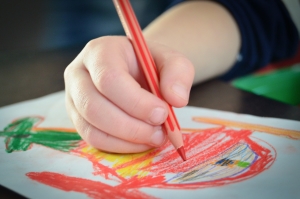 “Child” psychoanalysis and psychoanalytic psychotherapy is a method of treatment which addresses the roots of emotional behavioral disturbances in infancy, childhood, and adolescence. Children evidencing symptoms of emotional distress suffer impairments in their relationships and ability to function in their family and school environment. Careful diagnostic evaluation is implemented to distinguish between behaviors and emotional disturbances that are part of normal development and those that may impede and distort development.
“Child” psychoanalysis and psychoanalytic psychotherapy is a method of treatment which addresses the roots of emotional behavioral disturbances in infancy, childhood, and adolescence. Children evidencing symptoms of emotional distress suffer impairments in their relationships and ability to function in their family and school environment. Careful diagnostic evaluation is implemented to distinguish between behaviors and emotional disturbances that are part of normal development and those that may impede and distort development.
Psychoanalytic work seeks to understand the most primitive level of a child’s experience and to treat emotional and behavioral disturbances at their source. The central part of training develops the analytic ability to attend to the effects of the child on the therapist (transference) and informs the therapist’s response (countertransference) and interpretations. Emotional growth occurs with timely interventions that are attuned to the child’s current state and concerns; the therapist closely follows the child’s response to interpretations. This enables the therapist to know if anxiety has been modified and if there are signs of emotional growth. Specific aspects of the frame, the setting, and qualifies of the therapist’s mind are developed in order to provide a safe environment for expression of feelings and thoughts.
Infant, Child, and Adolescent Psychoanalytic Psychotherapy training at PCC relies, among others, on the Certificate of Completion ideas of Melanie Klein, Wilfred Bion, Donald Winnicott, Donald Meltzer, Frances Tustin, Esther Bick, Ann Alvarez. The program teaches techniques to establish a therapeutic relationship with the child/adolescent and to explore his/her conscious and unconscious emotions and internal world. This involves understanding the child’s conflicts and curiosities, their manifestations of anxieties and inhibitions, and their unconscious phantasies. While aspects of verbal expression and behavior are attended to, play is the child’s main mode of expression. Play is the way children manifest what they feel and think; it provides the material of psychoanalysis in a way similar to verbal associations and dreams in the adult.
The following can enroll in this program:
- Registered Nurses
- Marriage and Family Therapists
- Psychologists
- Clinical Social Workers
- Clinical Counselors
- Physicians
Special features of this program are as follows:
- One-Year Introductory Certificate Course for mental health clinicians working with children
- An Object Relations Synthesis of Prenatal, Infancy, Latency and Adolescent Life
- Integration with Infant Research and Neurobiology
- Introduction to Psychoanalytic Clinical Treatment from Infants to Adolescents
- Working with Parents
- Combined Didactic and Case-Based Seminars
- Begins October of Each Year
